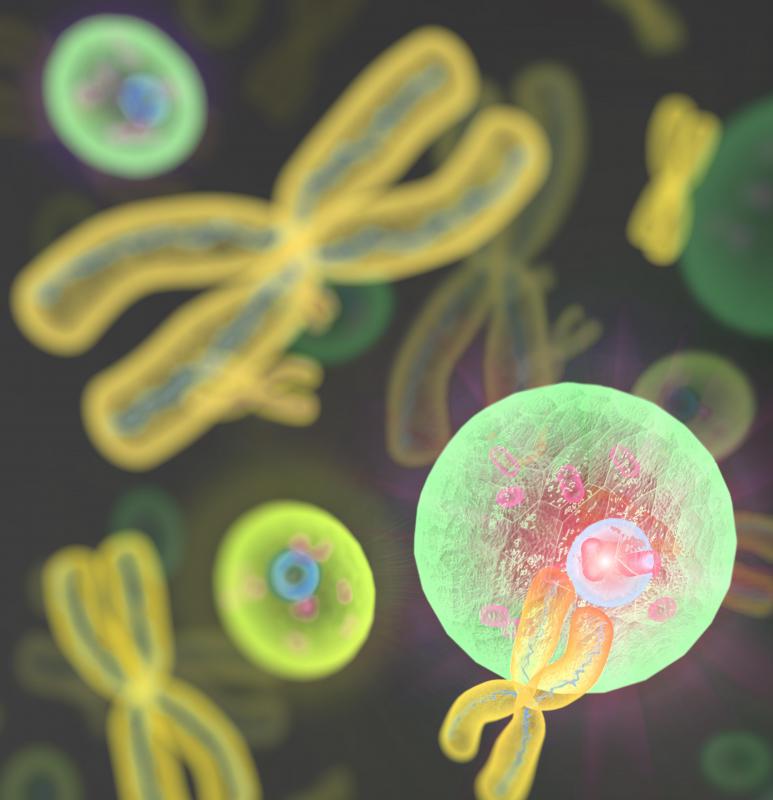At WiseGEEK, we're committed to delivering accurate, trustworthy information. Our expert-authored content is rigorously fact-checked and sourced from credible authorities. Discover how we uphold the highest standards in providing you with reliable knowledge.
What is Motilin?
Motilin is a relatively short peptide secreted in the small intestine, and is also known as the “housekeeper of the gut.” The name is explained by its function of improving gastrointestinal motility or peristalsis. It is one of the intestinal hormones responsible for the proper filling and emptying of the gastrointestinal system in response to intake of food and hunger stimuli and responses.
The motilin (MLN) gene is one of the genes on chromosome 6. Upon translation of this gene, an amino acid polypeptide is formed. This polypeptide consists of 22 amino acids, and its structure resembles another gut hormone called ghrelin. While motilin is produced by the endocrine M cells located in the crypts or mucosal invaginations of the duodenum and jejunum, ghrelin is produced by the stomach mucosa. It is important to note that the endocrine M cells that produce motilin are completely different from the M cells that are found in the Peyer’s patches and which are involved in immunity.

Although the actual stimulus for the secretion of this hormone is still being studied, some researchers believe that an alkaline or basic potenz hydrogen (pH) in the proximal part of the small intestine leads to its release. The main function of this hormone is the regulation of the interdigestive migrating contractions (IMC), which make up the motor or contraction pattern of the gut in the fasting state. IMC has four phases: phase I involves quiescence or rest, phase II involves irregular contractions, phase III involves intense peristalsis, and phase IV involves decrease in activity level until complete rest. In particular, this gut hormone plays a major role in the third phase of the IMC.

Motilin receptors are present in the smooth muscles and neurons of the gastrointestinal (GI) tract, and some studies have shown that the contractions occur due to a direct hormone-receptor interaction in smooth muscle cells. In-between meals, the levels of this hormone in the plasma increase every 90 to 120 minutes. After meal ingestion, this cyclical secretion of motilin disappears. Based on physiological studies, the increases in its plasma levels coincide with intense peristaltic waves originating from the stomach. These peristaltic contractions then move on to the small intestine and facilitate gastric emptying.

The stimulation of hunger contractions due to motilin release has led researchers to believe that this hormone may be used to develop drugs for stimulating intestinal peristalsis and decreasing gastric emptying time. Drugs that act on its receptor, such as erythromycin, have already been shown to stimulate gastrointestinal motility. Therefore, motilin may have applications on constipation or on weight management.
AS FEATURED ON:
AS FEATURED ON:















Discuss this Article
Post your comments